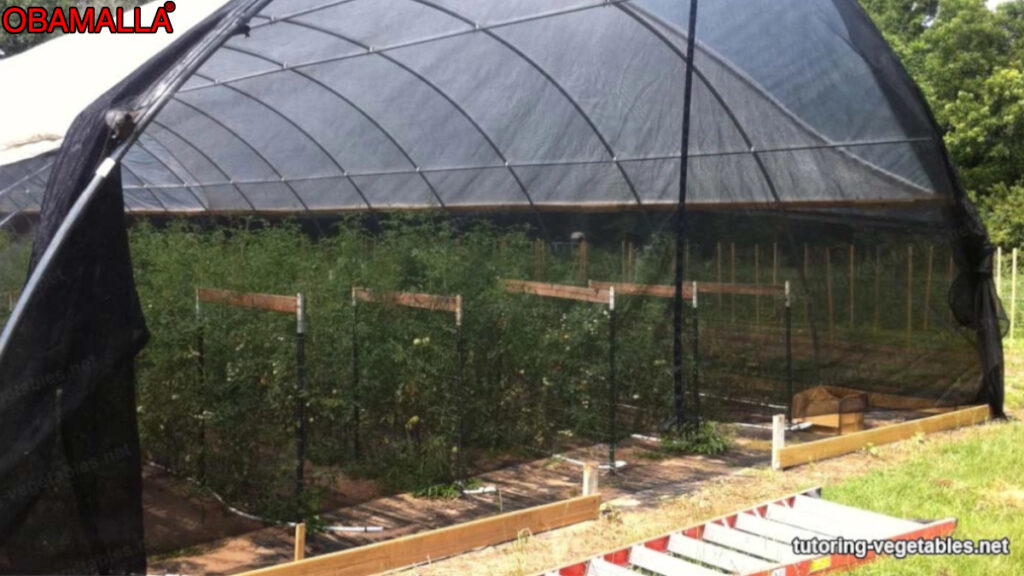In many vegetable fields, growers prefer to grow crops during the spring and summer months. This is because the average temperature during the warm months is best for select plants. This preference also applies to ornamentals that depend on warmer atmospheres for flowering. Although temperature generally provides a suitable environment for plant growth, growers must take into account infant temperature, i.e., those temperatures that affect optimum data for moisture transport, plant respiration, root growth and overall vigor. Depending on the type of plant, temperature regulation can make the difference between crop success and failure. The ideal temperature for tomatoes may be different than the ideal temperature for alfalfa. At the same time, growers must be careful not to damage the plant if the temperature drops below a certain level, which can cause disease and even plant death.
Good temperature control can be the result of proper planning. Regulators such as stoves, heaters, thermal blankets, shelters, thermal fertilizers, cyclic thermal irrigation, among others, can be very useful in regulating the temperature of vegetable fields. These provide a means of directly contributing to a healthy growing environment, especially in the case of temperature-sensitive plants. To achieve the best results, it is important to turn to a professional who can recommend the best type of equipment for each type of soil, where the exact location of the plantation should also be considered. This information will help growers accurately assess the influence of the season they are going through. In addition, growers can also consider the use of construction and shelters using heat-resistant materials, such as vinyl, that will help reflect heat light and reduce radiation levels.
Proper temperature control
To gain a better understanding of how different factors come into play for healthy plant growth, regular temperature monitoring can be conducted. Such monitoring can help predict temperature changes from one season to the next, which can be useful for scheduling temperature regulation. Proper infant temperature control is essential for successfully growing vegetable and ornamental fields. Proper temperature control can contribute to higher crop yields and improved plant health. However, temperature regulation must be accompanied by proper planning for the best experience. This may incorporate consultation with industry specialists, the selection of specific products, and the use of the most appropriate temperature control products. Vegetable fields are a very important part of our daily life as they provide us with fruits and vegetables necessary for our diet.
Temperature is one of the most important factors in maintaining the health and well-being of these vegetables and for this, we must regulate it. Heat and cold have different effects on vegetable fields and it is important that we take proper care of them to ensure the best results. A regulated temperature is the best way to keep vegetables healthy. One of the most positive effects of a regulated temperature in vegetable fields is the production of better quality food. Heat promotes the germination and growth of vegetables, so having a controlled temperature results in a cleaner and healthier food production, which in turn allows us to obtain better results in nutrients and flavor. In addition, fruit trees also benefit. Heat helps vegetables complete their development cycle more quickly, so a regulated temperature allows for a better fruit harvest.
What happens if temperature is not controlled in vegetable fields?
Temperature is a decisive factor for the good growth and development of any crop. Vegetable fields are no exception, and temperature control is one of the main concerns of growers responsible for quality vegetables. Temperature cannot be controlled by field location or traditional techniques alone, but must be controlled using a variety of tools, such as an irrigation system. If temperature is not controlled and is not kept stable in vegetable fields, the result can be disastrous. Too much or too little temperature can affect the quality of vegetable field production. Crops that are subjected to low temperatures grow more slowly and produce lower yields. On the other hand, too much heat can cause premature plant desiccation, which dooms the crop to failure. This can be prevented with increased temperature monitoring in and out of the field.
In addition, temperature control also affects farm animals and insects associated with vegetable production. If warm conditions are abused, animals correlated with vegetable fields such as chickens, ducks or hares will suffer from temperature discomfort, which will prevent them from doing their job of eating the insects that can damage the crop. Insects can also be affected by temperature, as they thrive at higher temperatures, which can lead to pest problems. Vegetable fields will also lack the amount of nutrients needed for the crop to develop properly. Extreme temperatures, whether high or low, inhibit crop growth. This means that the plant cannot absorb enough nutrients from the soil to fully develop. This is very common when there are cold spells, even if temperatures are as high as 15°C (59°F). The health of the people working in the vegetable fields must also be considered.

